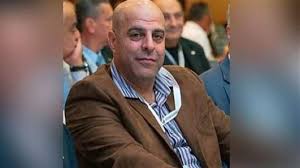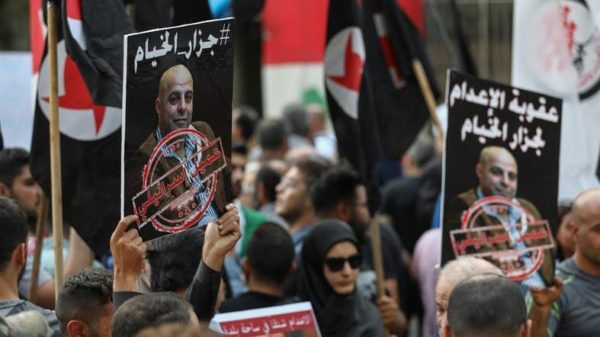A military tribunal in Beirut has ordered the release of an American citizen accused of running a southern Lebanese prison notorious for torture during Israel’s occupation of the region.

Amer Fakhoury was a member of the South Lebanon Army, a militia group that collaborated with the Israeli army during its 18-year occupation of southern Lebanon starting in 1982.
Lebanese authorities have accused Fakhoury, 57, of running Khiam detention centre, a prison where thousands of dissidents and militants were tortured during the 1980s and 1990s, earning him the nickname “the butcher of Khiam”.
He fled to Israel shortly before its forces withdrew from southern Lebanon in 2000 after years of conflict with the Shia militia Hezbollah. After nine months he migrated to the US and tried to claim political asylum but was turned down. Fakhoury became a US citizen through one of his children last year.
The court on Monday said he should be freed because the 10-year statute of limitations for his alleged offences had passed. Another charge against him, of having contact with Israel, had been dropped by the military court in 2018 as part of a wider amnesty for Lebanese who collaborated with the Jewish state during the occupation.

Fakhoury, who has four children and owns a restaurant in the US state of New Hampshire, has not been attending interrogation sessions since he was hospitalised a few months ago with with stage 4 lymphoma.
It was not clear if he would immediately be set free, as another case filed by former Khiam prisoners accusing him of torture is still pending.
A US senator from New Hampshire, Jeanne Shaheen, and other officials have called for sanctions to be imposed on Lebanon to pressure Beirut to release him.
Former Khiam prisoners have protested outside court during some of Fakhoury’s appearances, including several who alleged they were tortured on his orders. “[The jailers] used to whip our bodies with electrical cables until our skin got lacerated. Amer Fakhoury was the one who orchestrated the torture sessions,” Afif Hammud, 54, told L’Orient Le Jour newspaper last year.
Fakhoury’s lawyer, Celine Atallah, had said her client had worked in the prison but was never involved in or ordered torture. “His position at the Khiam prison was strictly logistical,” she said. “He had no contact with prisoners.”
She said he returned to Lebanon last September only after being granted assurances from high-ranking officials that the charges of contact with Israel had been dropped. “He had a lawyer to take care of this and the Lebanese government purged all his files and he was granted assurances he could return,” she said.
His daughter Zoya said his passport was taken from him after he arrived in Lebanon in September but he was told it was a routine check. The night before he went to collect it, the pro-Hezbollah Lebanese newspaper published a report revealing he had recently re-entered the country and listed the accusations against him.
He went to the Lebanese general security headquarters to pick up his passport and “that was the last time we saw him”, his daughter said.
Though Lebanon’s civil war ended three decades ago, many of the leading players remain in key political positions and the country’s politics is still formally divided along religious and sectarian lines.
THE GUARDIAN

Leave a Reply
You must be logged in to post a comment.